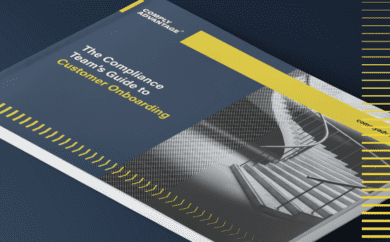 Featured
Featured
Australia Sanctions Russians for Human Rights Violations in First Magnitsky Designations
Sanctions Knowledge & TrainingAs Australia steps up its response to Russia’s invasion of Ukraine, it has targeted 39 Russians in its first use of the Magnitsky sanctions for human rights abuses.
14 Russians are accused of serious corruption, along with 25 Russian “perpetrators and accomplices” of whistleblower Sergei Magnitsky’s abuse and death. All 39 Russians have already been sanctioned by other Western nations and will be subject to asset freezes and travel bans.
Announcing the sanctions, Foreign Minister, Marise Payne said: “This will ensure that Australia does not become a safe haven for those already locked out of like-minded countries and their financial systems.”
What are Magnitsky Reforms?
The Magnitsky-style reforms were passed by the Australian government in December 2021 and enabled the targeting of individuals for egregious abuses of human rights.
They honor Sergei Magnitsky, a Ukrainian-born Russian lawyer who uncovered widespread corruption by Russian tax and law enforcement officials. He was imprisoned and mistreated and died in custody in November 2009 after being refused medical treatment.
Mr. Magnitsky’s case inspired an international movement of sanction laws to hold those responsible for his death accountable and to enable sanctions to be applied to others who violate human rights.
The UK, US, and Canada have all used Magnitsky-style sanctions, with the US Treasury Department’s Office of Foreign Asset Control (OFAC) issuing a raft of new sanctions under its Magnitsky human rights sanctions program in March.
Australian Sanction Measures
Australia’s move to adopt the reforms brings the country in line with the G7 and other members of its international community. Compliance teams should ensure they keep up with designations of real-time sanctions data, and look out for more sanctions to come, with the Foreign Minster noting that these are the “first of what will be ongoing sanctions using the Magnitsky-style reforms”.
The Foreign Minister also paid tribute to Senator Kimberley Kitching, who campaigned for Magnitsky-style sanctions to be adopted in Australia, and who died suddenly in March at the age of 52.
Other measures taken by Australia against Russia in March include bans on the export of aluminum ores, alumina, and related products to Russia, and the import into Australia of Russian oil and other energy products. February sanctions included listing measures for the Donetsk and Luhansk regions of Ukraine.
With so many evolving developments in the sanctions space, compliance staff must ensure screening systems are frequently updated to make sure all lists and updates are captured. They should also keep an eye on geopolitical developments as well as what is going on with sanctions, and ensure teams are updated regularly on the latest developments.
Keep up with the latest global sanctions with our real-time sanctions data.
Originally published 01 April 2022, updated 09 June 2022
Disclaimer: This is for general information only. The information presented does not constitute legal advice. ComplyAdvantage accepts no responsibility for any information contained herein and disclaims and excludes any liability in respect of the contents or for action taken based on this information.
Copyright © 2024 IVXS UK Limited (trading as ComplyAdvantage).



 EN
EN